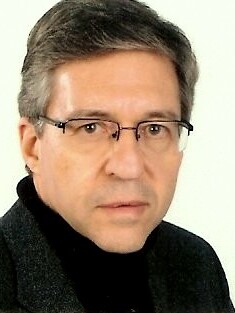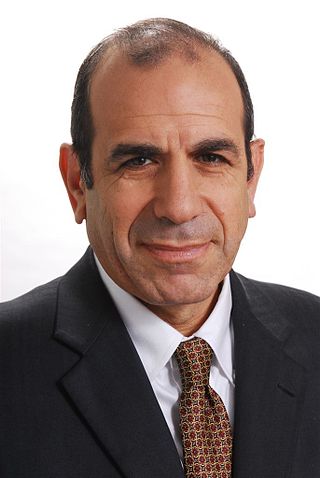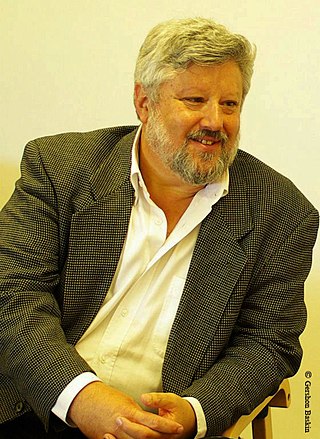
The Israeli–Palestinian conflict is an ongoing military and political conflict about land and self-determination within the territory of the former Mandatory Palestine. Key aspects of the conflict include the Israeli occupation of the West Bank and Gaza Strip, the status of Jerusalem, Israeli settlements, borders, security, water rights, the permit regime, Palestinian freedom of movement, and the Palestinian right of return.

Ehud Barak is an Israeli former general and politician who served as the tenth prime minister from 1999 to 2001. He was leader of the Labor Party between 1997 and 2001 and between 2007 and 2011.

The 2000 Camp David Summit was a summit meeting at Camp David between United States president Bill Clinton, Israeli prime minister Ehud Barak and Palestinian Authority chairman Yasser Arafat. The summit took place between 11 and 25 July 2000 and was an effort to end the Israeli–Palestinian conflict. The summit ended without an agreement, largely due to irreconcilable differences between Israelis and Palestinians on the status of Jerusalem. Its failure is considered one of the main triggers of the Second Intifada.

Yosef "Yossi" Beilin is an Israeli politician who has served in multiple ministerial and leadership positions in the Israeli government. Much of his political career was in the Labour Party. He also served as chairman of the Meretz-Yachad political party. After retiring from political life, Beilin founded 'Beilink', a business consultancy company. He also writes opinion pieces in Israeli papers Haaretz and Israel Hayom.
Tikkun olam is a concept in Judaism, which refers to various forms of action intended to repair and improve the world.
The Union for Reform Judaism (URJ), formerly known as the Union of American Hebrew Congregations (UAHC) until 2003, founded in 1873 by Rabbi Isaac Mayer Wise, is the congregational arm of Reform Judaism in North America. The other two arms established by Rabbi Wise are the Hebrew Union College-Jewish Institute of Religion and the Central Conference of American Rabbis. The current president of the URJ is Rabbi Rick Jacobs.

Tikkun is a quarterly interfaith Jewish left-progressive magazine and website, published in the United States, that analyzes American and Israeli culture, politics, religion, and history in the English language. The magazine has consistently published the work of Israeli and Palestinian left-wing intellectuals, but also included book and music reviews, personal essays, and poetry. In 2006 and 2011, the magazine was awarded the Independent Press Award for Best Spiritual Coverage by Utne Reader for its analysis of the inability of many progressives to understand people's yearning for faith, and the American fundamentalists' political influence on the international conflict among religious zealots. The magazine was founded in 1986 by Michael Lerner and his then-wife Nan Fink Gefen. Since 2012, its publisher is Duke University Press. Beyt Tikkun Synagogue, led by Rabbi Michael Lerner, is loosely affiliated with Tikkun magazine. It describes itself as a "hallachic community bound by Jewish law".
Young Judaea is a peer-led Zionist youth movement that runs programs throughout the United States for Jewish youth in grades 2–12. In Hebrew, Young Judaea is called Yehuda Hatzair or is sometimes referred to as Hashachar (השחר), lit. "the dawn". Founded in 1909, it is the oldest Zionist youth movement in the United States.

Intermittent discussions are held by various parties and proposals put forward in an attempt to resolve the ongoing Israeli–Palestinian conflict through a peace process. Since the 1970s, there has been a parallel effort made to find terms upon which peace can be agreed to in both the Arab–Israeli conflict and in the Palestinian–Israeli conflict. Notably the Camp David Accords between Egypt and Israel, which included discussions on plans for "Palestinian autonomy", but did not include any Palestinian representatives. The autonomy plan would not be implemented, but its stipulations would to a large extent be represented in the Oslo Accords.

The Taba Summit were talks between Israel and the Palestinian Authority, held from 21 to 27 January 2001 at Taba, in the Sinai. The talks took place during a political transition period – Israeli Prime Minister Ehud Barak had resigned six weeks previously on 9 December 2000, and elections were due on 6 February 2001, and the inauguration of President George W. Bush had taken place just one day prior, on 20 January 2001.

The Arab Peace Initiative, also known as the Saudi Initiative, is a 10 sentence proposal for an end to the Arab–Israeli conflict that was endorsed by the Arab League in 2002 at the Beirut Summit and re-endorsed at the 2007 and at the 2017 Arab League summits. The initiative offers normalisation of relations by the Arab world with Israel, in return for a full withdrawal by Israel from the occupied territories, with the possibility of comparable and mutual agreed minor swaps of the land between Israel and Palestine, a "just settlement" of the Palestinian refugee problem based on UN Resolution 194, and the establishment of a Palestinian state with East Jerusalem as its capital. A Palestinian attack called the Passover massacre took place on 27 March 2002, the day before the Initiative was published, which initially overshadowed it.
The Reut Group is a non-profit policy think tank and Israeli lobby organization in Tel Aviv. It was founded by Gidi Grinstein in January 2004 to provide decision-support to Israeli policymakers. The Reut Institute was established in January 2004 by Gidi Grinstein and a team of founders.

Yossi (Joseph) Alpher is an Israeli columnist and writer on Israel-related Middle East strategic issues. Alpher is best known as the author of the prize winning Periphery: Israel's Search for Middle East Allies, as well as coeditor of Bitterlemons in collaboration with Ghassan Khatib, a former vice president of Bir Zeit University. In recent years, Alpher has been extensively interviewed in documentaries about the Mossad.

Gilead Sher is an Israeli attorney who served as Chief of Staff and Policy Coordinator to Israel's former Prime Minister and Minister of Defense, Ehud Barak. In that capacity he acted as one of Israel's senior peace negotiator in 1999–2001, at the Camp David summit in 2000 and the Taba talks in 2001, as well as in extensive rounds of covert negotiations with the Palestinians.
Events in the year 2000 in Israel.
Tikun Olam is a Seattle-based political blog that regularly reports on Israeli security matters. The blog was created in 2003 by Richard Silverstein and covers the Arab–Israeli conflict. Silverstein describes it as a "liberal Jewish blog" that "focuses on exposing the excesses of the Israeli national security state".

The Palestine Papers is a collection of confidential documents about the Israeli–Palestinian peace process leaked to Al Jazeera, which published them between 23 and 26 January 2011. Nearly 1,700 documents from the office of the main PLO negotiator, Saeb Erekat, and his team have been published, dating from 1999 to 2010.

Gershon Baskin is an Israeli columnist, social and political activist, and a researcher of the Israeli–Palestinian conflict and peace process. In 2022-2023,, Baskin was running three separate secret back channels between significant Israelis and Palestinians mainly looking toward the "day after" political changes would take place in Israel and Palestine.
Reserves of natural gas were found offshore the Gaza Strip in the year 2000, within the framework of licensing to British Gas by the Palestinian National Authority. The discovered gas field Gaza Marine, though mediocre in size, had been considered at the time as one of the possible drives to boost Palestinian economy and promote regional cooperation.
Dov Waxman is an author, academic and commentator. He is the Rosalinde and Arthur Gilbert Foundation Professor of Israel Studies at the University of California, Los Angeles (UCLA), and the director of the UCLA Younes and Soraya Nazarian Center for Israel Studies. Waxman is an internationally recognized expert on the Israeli–Palestinian conflict, Jewish–Arab relations in Israel, Israeli politics and foreign policy, Israel–United States relations, American Jewry’s relationship with Israel, Jewish politics, and contemporary Antisemitism.









